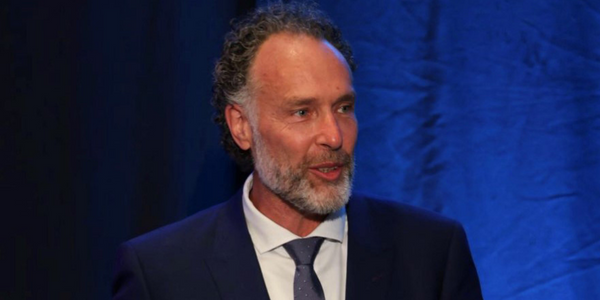Accelerating gender pay equality
Every board should be focussed on addressing the historical imbalance of gender pay disparity.
Boards and organisations need to broaden their understanding of mental wellbeing, says Health and Safety Forum executive director Francois Barton.

“A common challenge I see boards and senior leadership teams struggle with is, is what do we mean by mental wellbeing?” says Business Leaders’ Health and Safety Forum executive director Francois Barton MInstD.
The wellbeing conversation has become increasingly important over the past five years, he says, and one of the consistent issues within many organisations is a narrow understanding of what wellbeing is.
Barton, a co-founder of the forum, says this limits the scope for strategically addressing the issue. “What we struggle to do at a board and strategic level is hold the conversation long enough so we are on the same page.”
Often, wellbeing is defined through a need to promote healthy eating, or at the other extreme, suicide prevention, with little else in between, he says.

Francois Barton
Organisations are operating on a view that wellbeing is “code for people being mentally broken or having ill health”, and Barton says this is where opportunities will be missed.
Mental health issues have been on directors’ radars for the past two years, with 85 per cent in 2021 and 81 per cent in 2020 regularly discussing workplace mental health and wellbeing, according to the IoD’s Director Sentiment Survey. In 2022, 70 per cent of those surveyed approved initiatives to help address the issues (down from 72 per cent in 2021).
Launched in 2010, the forum is a not- for-profit organisation committed to improving the performance of workplace health and safety in New Zealand. Its strategy and services are structured around the framework of the World Health Organisation (WHO).
“It’s universal and every person at work – and in the world – has wellbeing and is moving up and down a continuum of being unwell through to thriving, all of the time,” Barton says.
He says work has positive and negative impacts on workers’ wellbeing, and it is important for leaders to understand what that looks like in their organisation. That enables management to minimise what work factors are driving the negative impacts and embed the positive factors.
“There is no stigma about people thriving. So we need to be embracing and amplifying that full spectrum of the wellbeing conversation, too.”
Covid-19 continues to reveal a long- term impact on wellbeing – one that has become a wider social issue. But Barton wants to be clear it is not the role of an organisation to take 100 per cent responsibility for a person’s wellbeing.
“But work is one of those [contributing] influences, so it’s looking at the risks around what that work creates, and the impact it has on our people’s wellbeing. It’s under-explored because the focus becomes about the individual, and not about the work that staff are asked to do.”
“What is absolutely true for directors, boards, CEOs and senior leadership teams is that mental wellbeing is universal, and for leaders to do their leadership work well they need to be well in themselves.”
In order to implement purposeful strategies, Barton says it is important to identify where people are being harmed, and where they are not.
These areas can include workload; staffing levels; a sense of purpose in the job; having the tools and equipment to do the task; workplace flexibility; work-life balance; matching skills to the work; the relationship of staff with management; and feeling safe to express your opinion without feeling marginalised.
“These are not stigmatised issues – that’s work,” Barton says. “But what organisations tend to do is fly over the thing they can control and influence, and ask people to take responsibility themselves. We tend to blame when things go wrong and celebrate when things go right, and learn way too little in between.”
He says another untapped opportunity is directors should be examining why there is resilience in one team and not others, and learn where the line is green.
One area that also requires more work is within business-leader circles where speaking up about personal experiences of mental health and wellbeing and addressing the issues has yet to become part of company strategy. This is an area Barton says needs more support and the same universal approach needs to be taken on the issue.
In response to this, and in particular off the back of Covid-19, the forum launched a new initiative called ‘Be Well to Lead Well’ – a programme that gives leaders a sense of their own wellness.
“What is absolutely true for directors, boards, CEOs and senior leadership teams is that mental wellbeing is universal, and for leaders to do their leadership work well they need to be well in themselves,” Barton says.
The 2022 Director Sentiment Survey showed only 41 per cent agreed their board had discussed the wellbeing of its board members in the past 12 months.
Read more